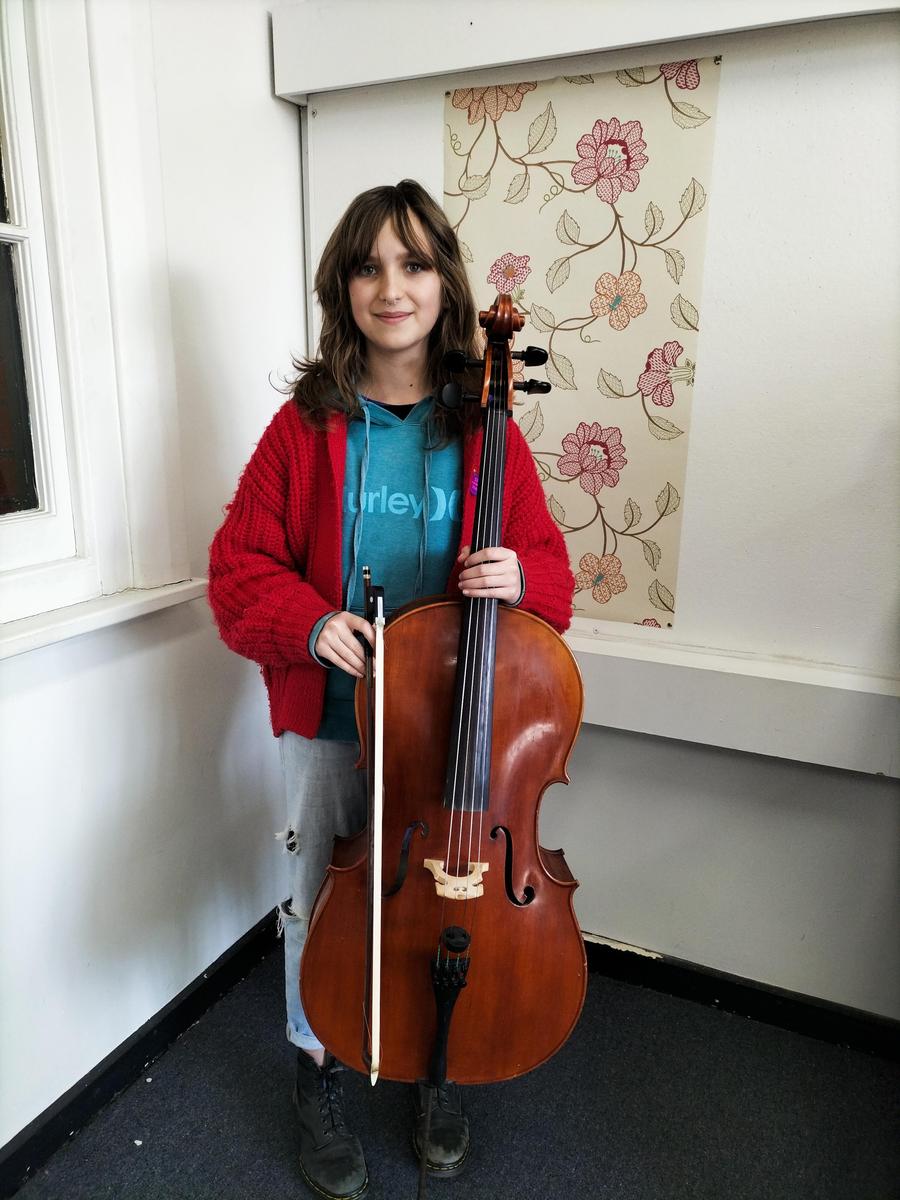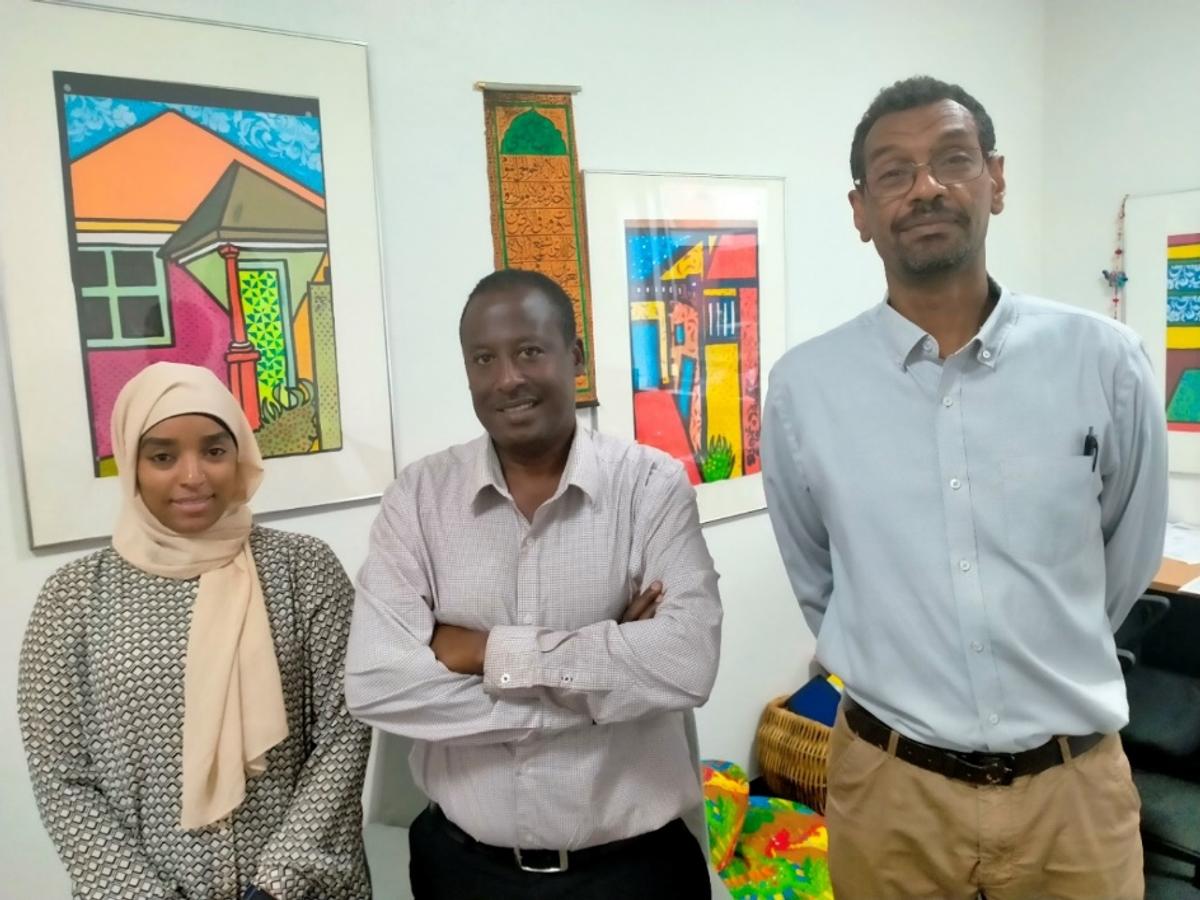Whole School News

WHOLE SCHOOL NEWS
VICTORIAN STATE SCHOOL SPECTACULAR 2021 - COLLINGWOOD PARTICIPANT
Save-the-Date: Saturday 11 September at John Cain Arena.(https://www.education.vic.gov.au/about/events/Pages/spectacular.aspx)
Year 10 student and cellist Dubhessa Bryant was selected to participate in this year's Victorian State Schools Orchestra as part of the Victorian State Schools Spectacular. Dubhessa has been one of Collingwood College's dedicated music students playing the ukulele since the start of primary school and beginning on cello in grade 3. While still in primary school she played in Collingwood College's Senior Orchestra and she ran the Ukulele club for students in class 1s and 2s with her sister Tadhg. In year 8, she and fellow high school students formed their own String Quartet called "Quadrant" (with Alkira Aares, Tadhg Bryant, and Talitha Ray) which is still going strong. But there's more ... Dubhessa maintains a busy schedule of rehearsing and performing on cello with the Melbourne Youth Orchestra and the Scottish Fiddle Club and regularly participates in music festivals such as Lakeschool and Rosewood. This year Dubhessa has managed to fit in The State Schools Spectacular as well! I caught up with her to find out more about this amazing experience.
Here is a record of our interview:
M - Marguerite Boland
D - Dubhessa Bryant
M: Were you playing ukulele before you played cello?
D: Yes, that’s correct, that was my first instrument. In fact, this is my Ukulele case [points to a case full of stickers]. That is the sticker of the first CD we recorded with my Ukulele group!
M: oh wow, look how many people were in your Ukulele group! So the group started at Collingwood?
D: No, it was Thornbury. The teacher there was teaching Ukulele and he said “So, we’re going to start a Ukulele group outside of school and rehearse on a Saturday”. And we got a bunch of gigs and played songs on Ukulele and arranged them.
D: I busked in the city for like two weeks and raised enough money for me and my mum to fly to Cairns for the Cairns Ukulele festival where our Ukulele group played at.
M: You raised enough for you and you mum to go – that is amazing!
M: There’s a bass Ukulele as well isn’t there?
D: Yes, I have one! And now Facebook has got some hidden videos of me, super-embarrassing, when I was like 9, singing at ukulele festivals.
M: I might have to try and find them [laughs]
D: Yes, a bit horrifying.
M: Let’s talk about the State Schools Spectacular – can you describe what it is?
D: It is for State School students, so students going to public schools, from pretty much any year up to year 12. And it’s this massive production – I think usually it’s about three thousand students involved all up. There’s the orchestra, which I’m part of. There's a mass dance with lots of students doing coordinated dances in costumes. There’s a principal Dance group. There are vocalists – principal vocalists and back-up vocalists. There’s a choir. So there’s this whole massive thing – everybody auditions to get in. The orchestra and some of the dancers rehearse on a Sunday… I started rehearsing in March and it goes all the way up to September when everything comes together and there’s a massive production. And that’s it.
M: It sounds so exciting! Do you play pieces as an orchestra or are you supporting the dancers?
D: So, yes, all of the pieces we play are supporting the singers and dancers. So we play … it’s not your typical classical orchestra. It’s all pop music, some rock music. We have a full orchestra and then a band – so a bass guitarist, a couple of guitarists, two keyboardists and a drummer. And we all rehearse together for seven hours on a Sunday …
M: Seven hours!?
D: Yes actually, seven hours most Sundays. And during the last school holidays, I rehearsed from 10 till 5 Monday to Thursday. That was our school holiday intensive program.
M: Oh wow!
D: But it is heaps of fun! The reason we have to rehearse so much is because we have two and a half hours’ worth of music. We are the only people who are there from the beginning to the end.
M: So you come on stage at the start and you’re not off there for two and half hours?
D: Yes, although technically we’re in a sort of pit off edge of the stage.
M: Oh ok …
D: We’re not the main attraction … but, you know, we bring all the music
M: (laughs) without you, it would be nothing!
D: Exactly. It would just be a bunch of singers doing a capella.
M: ha, no, not good enough!
D: Absolutely not!
M: How do you find the arrangements of the music, are they well done for the instruments, do you have fun parts to play?
D: One of the things I’ve found is that they are all in really weird keys. It’s really challenging in those keys. And the rhythm. A lot of the musical elements are quite straight-forward because it’s pretty mainstream pop music but, because the vocalists choose what key they want to sing in and the rest of the orchestra plays in whatever key the vocalist wants to sing in, we have three pieces with six flats and one piece with like four sharps!
M: Is that a good challenge?
D: Oh yeah, I love it. Because most of the orchestral music I’ve played before is in pretty easy keys that are designed for string playing. But playing in these wacky keys, it’s definitely challenging.
M: That’s really good. And are you relying on your score a lot or once you’ve got the sound into your ears the reading isn’t such an issue – or is there a lot of reading involved?
D: We have two hours and 20 minutes of music, so there’s a lot of relying on the score because you can’t possibly remember like 35 different charts.
M: So that’s good too, because that’s quite a contrast –well, not a contrast to classical orchestral music – but a contrast to say folk music, which I know you also play, where you might know something like 120 tunes but at least you have all the other musicians who know them too and everyone can help remember what they are.
D: Yeah.
M: What’s the feeling in the group at the moment? Is there a feeling that you’re on track for the performance on September 11th ?
D: Oh definitely! After our school holiday work, I think it sounds amazing. Our conductor is pretty critical but he says he reckons we’re on track and if this is our baseline for next term, we’re going to be absolutely fine. So I think it’s going very well.
M: That's great to hear. So you get to see basically everything beforehand, being in the orchestra. Except maybe the lighting and stage production side of it?
D: So, we’ve had tonnes for rehearsals just with the orchestra. We haven’t actually had rehearsals with the vocalists yet. That’s going to start this term, I think. And the week before the performance we have production week where every single day we go into the arena where we’ll be performing –there will be run-throughs with the sound and lighting, so we will have done the entire production under all the circumstances before the day.
M: Yes, that does make sense, an entire week. It’s a big commitment and also from a school perspective, keeping up with this and keeping up with school. Is that a challenge or is that ok?
D: Well, it was designed for school students, and specifically public school students, so … I haven’t found it too bad, honestly. As long as you’re doing homework on the weekday evenings then I think you’re pretty much set. And also, on Sunday the rehearsal doesn’t start until 10am, so you have a bit of your morning, you’re not getting up super-early. And then you’re getting home … well it ends at 5pm, so you definitely have Sunday evening to get prepared for school the next day. I also do orchestra on Saturday, for three hours. So my weekends are a bit full at the moment.
M: At least you’ve already had your stamina built up by doing all that orchestral work …
D: Oh yeah, absolutely.
M: What would you say to anyone thinking of being involved in the Spectacular?
D: Do It! There are so many things you can do. You don’t have to be a musician, you can be a dancer, you can go and audition to be a vocalist, there are roles that don’t go on stage, like stage managers, sound and lighting, stage calls. You can go in as an assistant stage manager and learn all about managing the show and chatting to the musicians and making sure everything is running smoothly. There are so many things you can do.
One great advantage is, it’s free. So, you’re not paying a thousand dollars in fees to pay tutors and conductors and …
M: … but you’re learning from experts in the field …
D: Yeah, but you’re learning from really amazing people.
M: Yeah, fantastic, it’s such a great opportunity. Is there anything that you would like to add about this experience for you?
D: I found that I’ve made tonnes of friends really quickly and especially in the orchestra. It’s really nice that everyone comes from a public school. Cos some of my other orchestras, State Music Camp,MYO [Melbourne Youth Orchestra], there’s quite a lot of private school kids and kids coming from pretty rich families and schools and who practise religiously and have done all of their AMEB exams. And this is a bit more relaxed, everyone is from a public school, so it feels like a bit more of an even playing field and I’ve found everyone a lot more friendly.
M: Yes, so these would be opportunities that are rarer in a school setting for kids in public schools, so it’s great to be giving this opportunity and bringing all different schools together so that you’re meeting and seeing how many kids there are out there and how much talent there is out there in the public schools.
D: Yeah, exactly, and in the public school system, it’s great.
M: Thank you so much – I wish you the very best of luck with it. And everybody … COME ALONG AND SEE!!
D: It’s on September 11, and if you look it up you’ll find where it’s being held.
M: Fantastic! We will post the information here. Thank you!
D: Thank you!
Community Liaison Officers helping Collingwood College to build positive connections with students and families of African background
Collingwood College has a student population of 823 students with a high number of students from culturally and linguistically diverse backgrounds (CALD).
Over 34 languages are spoken within the school community, and many students have only recently arrived in Australia with refugee status.
In 2020 Hassen Mohamed-Saeed, Badria Mustafa and Hussein Ibrahim joined the school as Community Liaison Officers working as part of the school’s wellbeing team.
These new roles were established to help build strong and positive connections with students and families of African background.
Click on the link below to read the article about their valuable work recently included in the Department of Education & Training website: https://www.education.vic.gov.au/about/news/Pages/stories/2021/Collingwood-College-is-building-connections-with-the-African-community.aspx
Children's Book Week 2021
Dates: Term 3: 21-27 August
Theme: Old Worlds, New Worlds, Other Worlds
Financial Assistance for Families
CAMPS, SPORTS & EXCURSIONS FUND (CSEF)
School camps provide children with inspiring experiences in the great outdoors, excursions encourage a deeper understanding of how the world works and sports teach teamwork, discipline and leadership. All of which are part of a healthy curriculum. CSEF allowance is provided by the Victorian Government to assist eligible families to cover the costs of school trips, camps and sporting activities.
If you hold a valid means –tested concession card or are a temporary foster parent, you may be eligible for CSEF. A special consideration category also exists for asylum seeker and refugee families.
The allowance is paid to the school to use towards expenses relating to camps, excursions or sporting activities for the benefit of your child.
The CSEF payment cannot be used towards voluntary school charges, books, stationery, school uniforms, before/after school care, music lessons, or formals/graduations.
The annual CSEF amount per student is:
· $125 for primary school students
· $225 for secondary school students
How to apply
New applications should contact the school office to obtain a CSEF application form, download from www.education.vic.gov.au/csef or download the form attached below:
CSEF forms are available from www.education.vic.gov.au/csef in a range of languages. Alternatively you can speak to one of our Community Liaison Officers.
Please check with the school office if you are unsure.
More Information
For more information about the CSEF visit www.education.vic.gov.au/csef
Claire Gibson
Business Manager
INSTRUMENTS FOR SALE - updated 11 MAY
Please click on the attachment below to see a list of Stringed instruments for sale. If you have an instrument for sale please email Naomi at: nomssicle@gmail.com
Pride Club
Pride Club! Tuesday lunchtime Room 301. For all students who support equality at Collingwood College!
COLLINGWOOD COLLEGE ON FACEBOOK AND INSTAGRAM
Collingwood College is online! Feel free to follow us on:
Instagram https://www.instagram.com/collingwood.college/ and like us on our Facebook page https://www.facebook.com/collingwood.vic.edu.au/ to keep up to date with everything that our school has to offer our students and the community.




